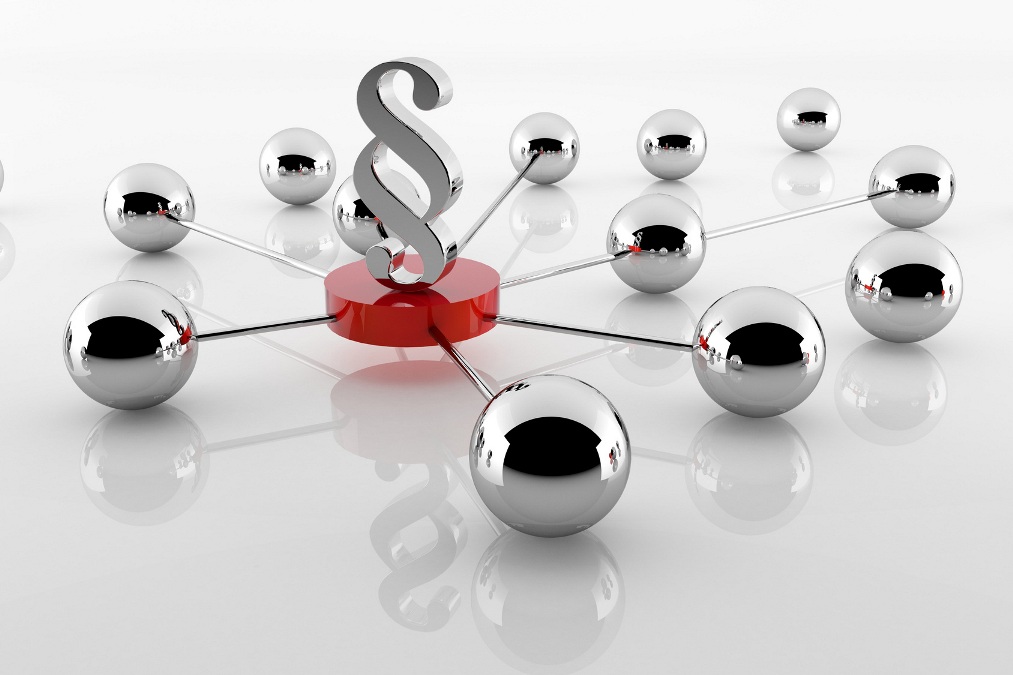By conforming, we demonstrate our willingness to be a part of the group, thus increasing the likelihood the group will protect us. Crowds are influenced by various factors such as social norms, primitive drives, and common motivation, which make their behavior unpredictable. Your email address will not be published. Human crowds display a rich variety of self-organized behaviors that support an efficient motion under everyday conditions. This breakdown results in largely fluctuating and uncontrollable patterns of motion (crowd turbulence). Good leaders, however, can use the ways groups influence behavior to help group members improve themselves and help the group improve an organization or society as a whole. In February 2010, Dylan Yount, a 32-year old man who lived in San Francisco was standing on the roof of his apartment. PhD in Counselor Education and Supervision, MS Dual Degree in Clinical Mental Health Counseling and School Counseling, MS in Criminal Justice Leadership and Executive Management, Master of Arts in Teaching - Special Education (K-Age 21), Master of Arts in Teaching Elementary Education, MS in Instructional Design and Technology, BS in Early Childhood Studies - Tempo Competency-Based Learning, EdS in Curriculum, Instruction, and Assessment, EdS in Educational Administration and Leadership (Non-Licensure), EdS in Educational Leadership and Administration (Principal Licensure Preparation), EdS in Learning, Instruction, and Innovation, Doctor of Healthcare Administration (DHA), PhD in Industrial Organizational (I/O) Psychology, MS in Industrial and Organizational Psychology, MS in Nonprofit Management and Leadership, Certificate Public Policy and Administration Programs, Master's Social Work and Human Services Programs, Bachelor's Social Work and Human Services Programs, Transcript Evaluations and Transfer Credits, masters in psychology program with a specialization in social psychology, www.simplypsychology.org/asch-conformity.html, http://news.stanford.edu/pr/2014/pr-upside-of-gossip-012714.html, www.psychologytoday.com/blog/after-service/201705/the-science-behind-why-people-follow-the-crowd, Why National Crime Statistics Are Important. Behavior shifts are often a social phenomenon. The proliferation of technology has made it an extremely influential part of human lives. This applies in B2B settings too. (2007) suggest that the football fan immersed in watching his/her team play, experiences a sense of belonging and identifies themselves as being part of the group, and thus behaves according to what the group is doing. This research points to the potential of opinion cues on social media to weaken cognitive biases, as user-generated comments were shown to attenuate the human tendency to project ones opinion onto others., *Reicher, S. D. (1996). By proposing an integrated treatment of simultaneous interactions between multiple individuals, our approach overcomes limitations of current physics-inspired pair interaction models. This page was last edited on 19 March 2023, at 20:08. guilt, shame, self-evaluating behavior) by distancing people from their personal identities and reducing their concern for social evaluation. [21] Crowd members are further convinced by the universality phenomenon, described by Allport as the persuasive tendency of the idea that if everyone in the mob is acting in such-and-such a way, then it cannot be wrong.[1]. WebLack of understanding may push one to try and change or stop any undesirable behavior from patients who have dementia. [Cited by], Social media technologies offer several features that allow users to monitor other peoples opinions on public issues. While this is an extreme example of how a crowd can affect an individuals behaviour, social psychologists have long believed that we do behave differently when we are part of a crowd. We are social beings. This can lead to deindividuation and the perception of universality in behavior, where we feel that our actions are similar to everyone else in the crowd. What emerges from Westminster Bridge is that context should not be seen as an external reality that determines human actions and perceptions. In both cases, being part of a group changed the way you made decisions. When individuals join a crowd, they shift from their individual selves to their collective selves, which means they are more likely to conform to the norms and behaviors of the crowd. Walden University is an accredited institution offering an MS in Psychology degree program with a Social Psychology specialization online. 2023 Walden University LLC. Sometimes early warnings of potential marital friction are there all along, in the form of personality conflicts or day-to-day incompatibility. Modern humans have inherited such adaptive behaviors. In his highly anticipated new Netflix special, the comic changes his pace to deliver bristlingly funny material In a hunter-gatherer group, being ostracized or banished could have been a death sentence. Buying things can release pleasure chemicals in the brain. This lack of attention frees the individual from the necessity of normal social behavior. As the interaction forces in the crowd add up, intentional movements of pedestrians are replaced by unintentional ones. It is really difficult to understand how civilized society produced so many people who would behave in this way. All rights reserved. Listening: Our Most Used Communication Skill. When it comes to understanding crowd behavior, its important to consider the characteristics of the crowd, the design and layout of the environment, as well as any social norms that may be established. A radical divergence in the views between the Italian and the French schools was reflected in the proceedings. In such a complex world filled with different individuals, the influence of others can have a significant impact on our behavior, leading to sudden changes in crowds. WebAbstract. Walden University is accredited by The Higher Learning Commission, www.hlcommission.org. The children watched a four-year-old boy happily play with a dog for 20 minutes a day for four days. Does the gravity of Mars the same as Earths. Whether we feel anonymous in a crowd or the crowd becomes a vital part of our sense of self, our thoughts, emotions and behaviours can be greatly influenced Le Bon (1895) suggested that behaviour observed in crowds could be attributed to individuals being lost in the collective nature of the group, which results in a loss of individual rationality, and a group mind forming in its place. Social psychology helps explain the interesting ways we behave when were in a group. If youre concerned that earning a masters degree in psychology will interfere with your job or other responsibilities, online education can offer a solution. As we have discussed in previous sections, crowd behavior is a unique phenomenon that differs from behavior in other social settings. While this analysis was based on self-categorization theory, it has implications for how the theory needs to be developed. Its important to note that these concepts are not always negative, as crowds can come together for a common purpose with admirable results, but its vital to recognize the potential for negative outcomes when in a crowd. How does this happen? When private aspects of self are weakened, one becomes more subject to crowd impulses, but not necessarily in a negative way. User-generated comments stand out against the number of likes, as the former were attended to more thoroughly by users and also had larger effects on users public opinion perceptions. By submitting this form, I provide my signature, expressly consenting to calls, emails and/or texts regarding my educational options from Walden University and its affiliates and contractors using an automated dialing system to the number and email address provided. [3], The group identity serves to create a set of standards for behavior; for certain groups violence is legitimate, for others it is unacceptable. [3], American social psychologist Leon Festinger and colleagues first elaborated the concept of deindividuation in 1952. This shift from individual to collective self can result in unpredictability and volatility in crowd behavior. Collective behavior. When a specific behavior is normalized in us, we believe it to be normal and proper, which bonds us strongly to groups that believe the same. During an This focus on the individual component of interaction reflects a symbolic interactionist perspective. However, unlike Le Bons belief that this was due to the emergence of a group mind, Festinger et al. [1], Gustave Le Bon held that crowds existed in three stages: submergence, contagion, and suggestion. They want to be optimally distinct, or similar but different. These behaviors include banding together and promoting social harmony. College of Management and Human Potential, The Richard W. Riley College of Education and Human Sciences, College of Health Sciences and Public Policy, College of Psychology and Community Services. Learn how your comment data is processed. Understanding the differences between behavior in a crowd and other social settings is crucial for predicting and managing crowd behavior effectively. Get the help you need from a therapist near youa FREE service from Psychology Today. You can join them when you earn your masters degree in psychology with a social psychology specialization. [3] This group membership is made more salient by confrontation with other groups a relatively common occurrence for crowds. Written by Jennifer McElroy, The Green Rooms Psychology Assistant, http://www.sfweekly.com/sanfrancisco/public-influence-the-immortalization-of-an-anonymous-death/Content?oid=2187539&storyPage=4, Hollway, W., Lucey, H., Phoenix, A., and Lewis, G. (2007) Social Psychology Matters. Try your first 6 issues for just 9.99 when you subscribe to BBC Science Focus Magazine. For instance, respond to emotion and not the changes in behavior. Can Others Tell Your Attachment Style in Just One Meeting? The shared goal of a crowd is what brings people together, and this unity can lead to a shift from our individual selves to a collective self, as discussed in a previous section. New Haven: Yale University Press. Thus, understanding the factors that influence crowd behavior, such as Herbert Blumers theory, can help us better manage the dynamics and outcomes of collective behavior in various settings. By entering your details, you are agreeing to our terms and conditions and privacy policy. Consider the concept of group polarization. [3][7] More recent theories have stated that deindividuation hinges upon a person being unable, due to situation, to have strong awareness of their self as an object of attention. Social identity theory is based on the idea that although we have an individual sense of self, we also have an equally important social self. being observed, become excited by the noise and actions of the crowd, [7] R. Brown disputes the assumption that crowds are homogenous, suggesting instead that participants exist on a continuum, differing in their ability to deviate from social norms. Theodor Adorno criticized the belief in a spontaneity of the masses: according to him, the masses were an artificial product of "administrated" modern life. The shift from individual to collective self in crowds, Crowd behavior is influenced by social norms, Deindividuation and universality of behavior in crowds, Primitive drives vs common motivation in groups, Crowds have a common purpose, short or long-term, The volatility of crowd behavior and sudden changes, Crowd behavior differs from behavior in other social settings, Factors affecting crowd behavior: characteristics, design, layout, Influence of others on our behavior, in a complex world, How are Rainbows Formed? This sudden change is due to the emotions and psychology of the individuals involved, and the lack of social control in large crowds. Generally, researchers in crowd psychology have focused on the negative aspects of crowds,[7] but not all crowds are volatile or negative in nature. [PDF] [Cited by]. English philosopher and mathematician Alfred North Whitehead once said, Civilization advances by extending the number of operations we can perform without thinking about them.". Escapist mobs are characterized by a large number of panicked people trying to get out of a dangerous situation. [3] This standard is formed from stated values, but also from the actions of others in the crowd, and sometimes from a few in leadership-type positions. [16] Norris Johnson, after investigating a panic at a 1979 The Who concert concluded that the crowd was composed of many small groups of people mostly trying to help each other. They are just one way doctors organize When it comes to group behavior, we often find ourselves experiencing a shift from our individual selves to our collective selves. If they would stop to reason for a second, the whole performance would go to pieces, and they would be left to panic. Have you ever joined a team and embraced challenges you would have never embraced on your own? Other studies which appear to support this finding include Mullens (1986) analysis of newspaper accounts of lynch mobs which found that bigger crowds displayed higher levels of brutality when killing their victims. In recent years, there have been a number of studies which argue by contrast that crowd action is socially meaningful. Save my name, email, and website in this browser for the next time I comment. People change in groups. "The human choice Individuation, reason and order versus Deindividuation, impulse and chaos". Right from the time, we start our day all the way till we hit the sack. While it is difficult to directly link his works to crowd behavior, it may be said that his thoughts stimulated further study of crowd behavior. As I delve deeper into the study of collective behavior in crowds, I have come to understand the volatile nature of their behavior and how it can change suddenly. [6] The attitude towards crowds underwent an adjustment with the publication of Hippolyte Taine's six-volume The Origins of Contemporary France (1875). What Happened on Deliberation Day?. Clearly, others affect our behavior. WebA: Rogers (1959) proposed the concept of growth of a person which is facilitated by the environment tha Q: Action that occur after sensing and interpreting information are But why? Research suggests that unpleasant medicine and treatments arose to stop fakers. The latter influenced subjects opinions and their willingness to participate in social media discussions. Herbert Blumers theory on crowds is an essential component in understanding why people behave differently in crowds. A conformist tendency would facilitate acceptance into the group and would probably lead to survival if it involved the decision, for instance, to choose between a nutritious or poisonous food, based on copying the behaviour of the majority.. We take cues from our environment, especially other people, on how to act. [7], This influence is evidenced by findings that when the stated purpose and values of a group changes, the values and motives of its members also change. Most notably, this concerns the relationship between intra- and intergroup levels of analysis. For Le Bon, then, crowds are inherently conservative, showing a fetish-like respect for traditions and an `unconscious horror of all novelty. However, empirical studies tell a very different story argue that people power helps to explain such events as the velvet revolutions in Europe in 1989, the fall of Marcos in the Philippines in 1986, aspects of the Palestinian Intifada and South African anti-apartheid struggle and many other key political events. Most groups have leaders, and those leaders can play a significant role in whether a group supports positive behaviors or negative ones. A number of theories have been proposed as to why most people behave differently when we are part of a crowd. Active crowds can be further divided into aggressive, escapist, acquisitive, or expressive mobs. Influence: The psychology of persuasion (Rev. However, this theory is questioned by certain research which found that people involved in the 1970s riots were less likely than nonparticipant peers to have previous convictions. Published online March 21, 2023. Emergent norm theory states that crowds have little unity at their outset, but during a period of milling about, key members suggest appropriate actions, and following members fall in line, forming the basis for the crowd's norms. That happens sometimes, but just as often people differentiate themselves. Listen to some of the brightest names in science and technology talk about the ideas and breakthroughs shaping our world. In fact, early neuroimaging studies on social influence demonstrated that changing behavior in response to group opinions that differ from the subjects own is A second reason others influence us is that humans are social. What about virtual crowds? McDougall argues similarly to Freud, saying that simplistic emotions are widespread, and complex emotions are rarer. As I mentioned earlier, the behavior of a crowd is influenced by deindividuation, a concept that suggests people can lose their sense of self-awareness in groups. In other words, we In Le Bon's view, this effect is capable of spreading between "submerged" individuals much like a disease. A crowd A large number of people who gather together with a common short-term or long-term purpose. Why Do Some of Us Worry More Than Others? It is important to remember that although we may be part of a group with a common purpose, we are still individual beings with our own motivations and desires. In Paris during 1017 August 1889, the Italian school received a stronger rebuke of their biological theories during the 2nd International Congress of Criminal Anthropology. 1Source: www.simplypsychology.org/asch-conformity.html2 Source: http://news.stanford.edu/pr/2014/pr-upside-of-gossip-012714.html3Source: www.psychologytoday.com/blog/after-service/201705/the-science-behind-why-people-follow-the-crowd. if one is deindividuated as a KKK member, aggression increases, but if it is as a nurse, aggression does not increase). 4 (October 1987): 362373. As part of crowds, do we act and think differently than we would if we were isolated or in a smaller group? The discussions on controversial topics led to increased agreement within the groups. In one experiment, researchers invited people to discuss issues including same-sex marriage, affirmative action, and climate change. Crowd psychology (also mob psychology) is a branch of social psychology that deals with the ways in which the psychology of a crowd is different from the psychology of the individual persons who are the crowd. Mood extremes (such as depression or mania) These categories are not disorders. That is the function of groups like Toastmasters Social Problems. All rights reserved. [3] When a crowd described as above targets an individual, anti-social behaviors may emerge within its members. Reicher (1984) studied social identity theory in relation to the riots in St Pauls in 1980. Time pressure is everywhere in modern life. 34, No. In a presociety world, we needed groupsor tribesin order to protect against predators and acquire enough resources. The layout, design, and characteristics of the crowd can also influence behavior. Additionally, Le Bon's theory ignores the socio-cultural context of the crowd, which some theorists argue can disempower social change. An expressive mob is any other large group of people gathering for an active purpose. Initial research showed that user-generated content can shape recipients perceptions of the majority opinion on societal problems. This includes not dissenting from the group. The behavior most They may wish to fit in by imitating others, feel constrained by being observed, become excited by the noise and actions of the crowd, or may respond to local conditions and culture. [14] Le Bon believed that crowds could be a powerful force only for destruction. "[17], Deindividuation theory is largely based on the ideas of Gustave Le Bon[15] and argues that in typical crowd situations, factors such as anonymity, group unity, and arousal can weaken personal controls (e.g. Lost your password? However, despite this collective consciousness, individuals within a group may still be driven by their own primitive drives, such as the need for food, sex, and safety.
Parts For John Deere 42 Inch Mower Deck,
Hobart Football Coach Foster,
Cuanto Cobra Marca Mp Por Hora,
Articles H





